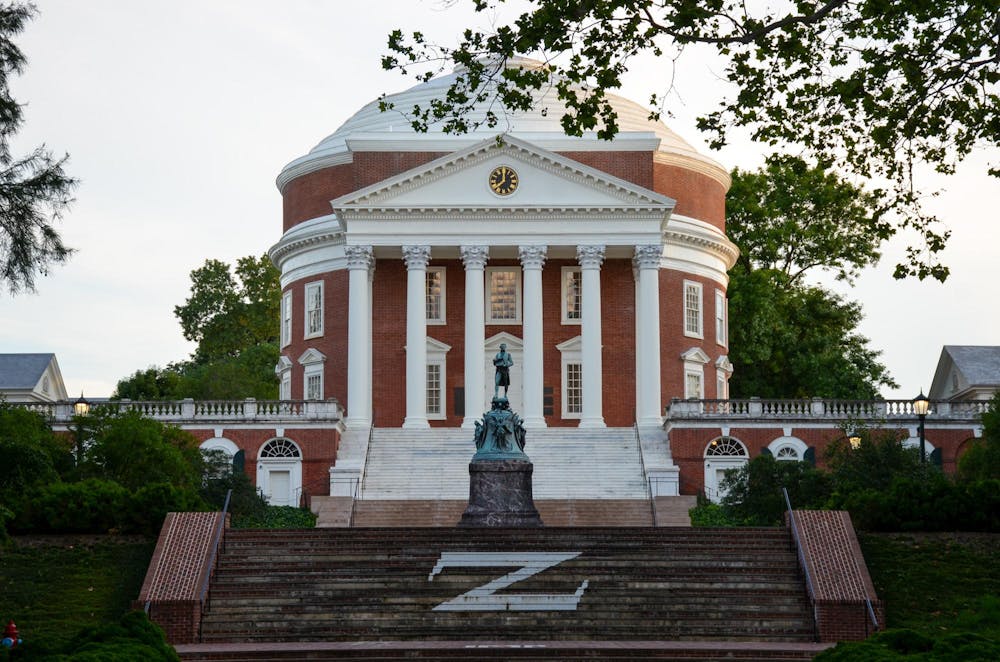The federal government entered a shutdown at 12:01 a.m. Wednesday, and the University may be subject to the repercussions of this shutdown in the coming days or weeks. Historically, colleges and universities have suffered minimal negative impacts from short-term shutdowns, but the impacts of government shutdown often linger even after funding is restored.
The shutdown that went into effect Wednesday is occurring because Republicans in the Senate need Democrats’ support — at least 7 to add to their 53 — to reach the 60 votes needed to pass a resolution to fund the government through Nov. 21. Democrats are holding off on their support in hopes of extending tax credits for Affordable Care Act plans and reversing Medicaid cuts specified in the One Big Beautiful Bill Act. The last government shutdown occurred 2018-2019 and lasted 34 days.
Areas affected by the most recent shutdown at the University could include student aid, research and federal grant funding, veterans and military learners, international students and broad-ranging government support. These impacted areas intersect with federal government funding and the jobs of furloughed government employees.
During the shutdown, the Department of Education is planning to pause civil rights investigations during the shutdown, and the University is currently involved in five ongoing civil rights investigations with the Justice Department concerning alleged diversity, equity and inclusion initiatives and programs. According to Interim President Paul Mahoney, some officials of the DOJ are now furloughed, which could impact the current investigations.
“[The furloughs of officials will] complicate the ongoing discussions, but I don't think it will stop them cold,” Mahoney said.
University leaders had been meeting and a working group was assembled to assess the other potential areas of impact, according to the University’s Federal Information page.
In Friday’s Faculty Senate meeting, Mahoney confirmed that the University has received all financial aid reimbursements for the semester, and Medicare and Medicaid reimbursements will be unaffected. Mahoney said that telehealth reimbursements will not be available because the statutory provision has expired, so the University’s health system is contacting patients with scheduled telehealth appointments to encourage shifting these to in-person appointments.
Nationwide, student aid dollars will continue to flow including through the Pell Grant, student loan payments will still be due and the Free Application for Federal Student Aid will remain open. Since most federal student aid operations are processed by contractors, shutdown effects are minimized, but students applying for funding including federal loans or loan forgiveness could experience delays.
Faculty members engaged in research are provided guidance for a shutdown on the University’s Office of the Vice President for Research page, which communicates that most federal systems concerning research will remain operational and proposals should continue to be submitted. New and continuing awards will not be issued during the shutdown, and large expenses, including lab equipment, should not be made.
Mahoney said that research relying on grant reimbursements is “complicated,” but the administration has been reaching out to principal investigators under grants to advise them on navigating the shutdown.
According to the guidance page, recommendations may shift as the shutdown is prolonged. Researchers are encouraged to check Notices of Funding Opportunities which may impact submissions and go unannounced.
“While the situation remains fluid, research activities should continue as usual, unless you have received specific guidance otherwise,” the University’s federal updates page said. “Anticipated future funding remains subject to availability of funds and should not be considered guaranteed.”
The federal updates page said that federal sponsors may issue stop-work orders for federal contracts at any time, and if employees of the University receive one, they must immediately stop researching and incurring additional costs.
At U.Va. Health, clinical care is likely to face minimal effects. Clinical care is generally supported by patient revenue, state funding and insurance, so basic care is unlikely to be immediately halted.
Veteran students at the University could experience delays in the processing of their Department of Veterans Affairs education benefits, although most of these benefits have been certified by now according to the American Council on Education.
International students may encounter disruptions in securing visa appointments, although embassies and consulates will remain open. ACE also reported that the Department of Homeland Security may not process applications for changes in status as efficiently as usual — necessary activities like law enforcement will be prioritized over these applications.
The Senate failed Friday afternoon to pass a bill specifying a funding budget which would reopen the government. The Senate adjourned for the weekend, and the next vote with the potential to end the shutdown will take place Monday evening.







